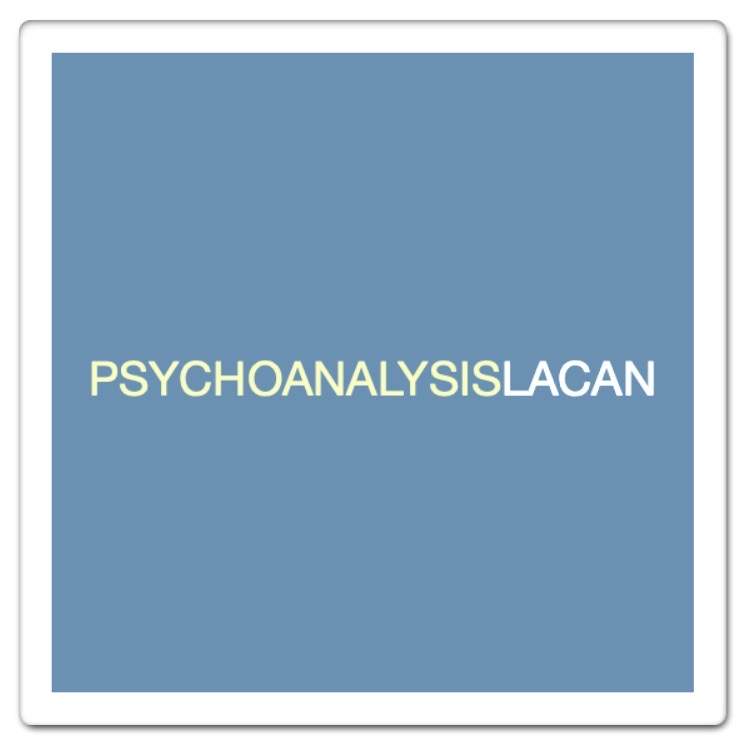PsychoanalysisLacan is the free, online journal of the Lacan Circle of Australia
We publish contemporary psychoanalysis in the Lacanian orientation
Volume 2: Crisis
The theme for the second edition of Psychoanalysis Lacan is that of ‘crisis’ in many of its forms, including that of individual subjects and in the world at large. As such, it continues a global conversation started in psychoanalytic circles two decades ago, picks up on the theme of knotting recently addressed here in Melbourne as well as in other parts of the world, and it anticipates the topic of fourth European Congress of Psychoanalysis which is to be held in Brussels in July 2017. As Director of the forthcoming Congress, Patricia Bosquin-Caroz notes in the context of psychoanalytic practice, ‘we are living in an era of a push-to-the-norm [pousse-à-la-norme] and of its proliferation’ (2016). More importantly, she states:
Psychoanalysts do not address the discontent of existence as a recognisable or classifiable mental disorder, but rather as a symptom […] right down to its singular irreducible marrowbone, the sinthome. Practice in the analytic orientation is interested in the unclassifiable, in that which escapes all forms of norm, in the incomparable of each one. (Bosquin-Caroz 2016)
The subject of the unclassifiable is a subject in crisis recognisable through the real and the imaginary, including the corporeality of its existence which knots both. It is nonetheless still noticeable through the symbolic. Consciously, the subject implores a god that would recognise its existence beyond corporeality. However, the fading subject of the unconscious depends upon a writing.
Arka Chattopadhyay takes a broad approach to the theme of crisis by interrogating the function of the literary in psychoanalytic practice and vice versa in relation to a real logic. Taking his cue from Lacan’s insights into truth as invention, he proposes a poetics of truth in the Real where the literary embodies the order of ‘half-saying’ while suggesting an alternative model of critical faith without religion might be found at the intersection of psychoanalysis and literature.
With ‘The Ties that Unbind: Knotting in the Age of Austerity’, David Ferraro links the theme of crisis with the concept of sinthome. He acknowledges the changes to the symbolic order in the post-WWII era that have been discussed in recent psychoanalytic papers, especially those highlighting that the discourse of the master has been increasingly displaced in favour of the University discourse, itself underpinned by the discourse of capitalism in order to consider the changes this crisis has wrought upon the imaginary register. He investigates some of the ways in which these changes are manifest in an era of ‘permanent debt and austerity’.
In translation, this issue of Psychoanalysis Lacan offers a paper by Eric Laurent that scrutinises the relation between psychoanalysis and medication. The field known as mental health has very largely excluded psychoanalysis from its canon, the former having supposedly been supplanted by new ‘generations’ of drugs. As Laurent shows, far from signalling a crisis for psychoanalysis, the relentless medicalisation of subjects indicates an emerging problem that psychoanalysis itself may be in a unique position to address.
François Ansermet, too, discusses emergent fields in biotechnology, observing how these new developments interact with psychosis in contemporary times. On the one hand, technology supplies ‘ready to wear’ identities that lead to the misrecognition of psychosis, and to the psychotic use of identity itself.
Some of the papers in the present volume were written during the height of the Greek debt crisis on 2015. Iro Zoubopoulou is a native-born Greek in Athens during the crisis, and her paper provides an invaluable overview to the different dimensions of this crisis from a psychoanalytic perspective.
This issue of the journal ends with poems by Simon McNamee and Dominique Hecq which invite further reflection on the theme of crisis and the possibilities of knotting.
Special thanks must go to Lucas Marvel, Tim Alves and Simon McNamee who assisted in editing the papers in this journal, and also to Mia Lalanne for her translation of Ansermet, and Justin Clemens for his work in translating Laurent. Finally, we are indebted to Russell Grigg for his efforts in liaising with contributors, without which this publication would not be possible.
Bosquin-Caroz, Patricia 2016 ‘The argument’ Trans. Raphael Montague. Communication announcing the theme of the 4th NLS Congress.
Carozhttps://mail.google.com/mail/u/1/#search/in%3Atrash+nls/15820a4f4ea7731c. Accessed 7.11.201

